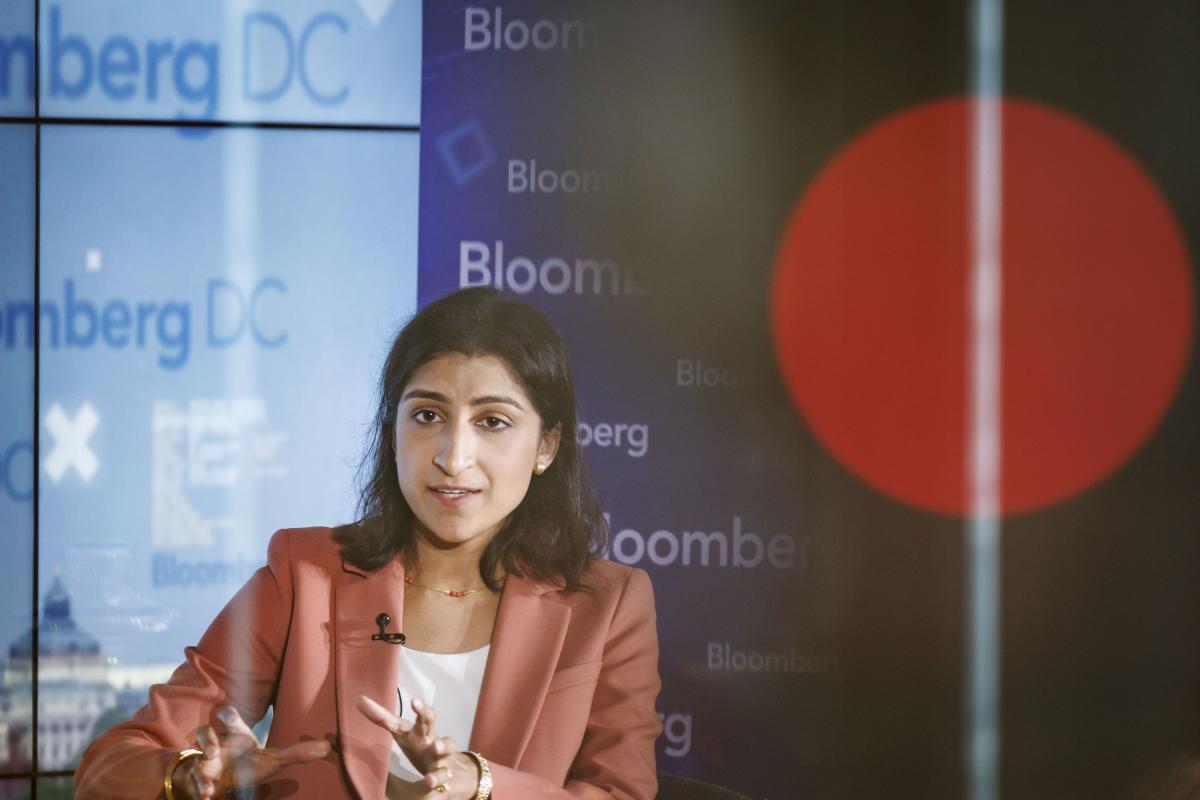
(Bloomberg) — Open artificial intelligence models that allow developers to customize them with few restrictions are more likely to promote competition, Federal Trade Commission Chair Lina Khan said, weighing in on a key debate within the industry.
Most Read from Bloomberg
“There’s tremendous potential for open-weight models to promote competition,” Khan said Thursday in San Francisco at startup incubator Y Combinator. “Open-weight models can liberate startups from the arbitrary whims of closed developers and cloud gatekeepers.”
“Open-weight” models disclose what an AI model picked up and was tweaked on during its training process. That allows developers to better customize them and makes them more accessible to smaller companies and researchers. But critics have warned that open models carry an increased risk of abuse and could potentially allow companies from geopolitical rivals like China to piggyback off the technology.
Khan’s comments come as the Biden administration is considering guidance on the use and safety of open-weight models. In February, the Commerce Department sought public comments on the risks associated with that approach.
Meta Platforms Inc. and France’s Mistral AI have focused on releasing open-weight models, while other AI pioneers like Alphabet Inc.’s Google and OpenAI have closed models where the underlying source code and data aren’t public. The Facebook parent this week released a new model, called Llama 3.1, along with an open-access strategy that allows the technology to be used by the public for free, so long as they adhere to the company’s “acceptable use policy.”
The FTC, which enforces both antitrust and consumer protection laws, has a number of ongoing inquiries into AI, including an antitrust investigation into Microsoft Corp. over its relationship with OpenAI and its hiring of staff from Inflection AI. In March, the Redmond, Washington-based software giant agreed to pay the startup $650 million to license its AI software and hired much of Inflection’s staff.
Khan didn’t comment on the probes but said that the agency has heard complaints about dominant companies “monopolizing access to great talent, to critical inputs and to valuable data.”
“The FTC is doing our part to be vigilant and to open up the market,” she said.
–With assistance from Rachel Metz.
Most Read from Bloomberg Businessweek
©2024 Bloomberg L.P.
EMEA Tribune is not involved in this news article, it is taken from our partners and or from the News Agencies. Copyright and Credit go to the News Agencies, email news@emeatribune.com Follow our WhatsApp verified Channel





